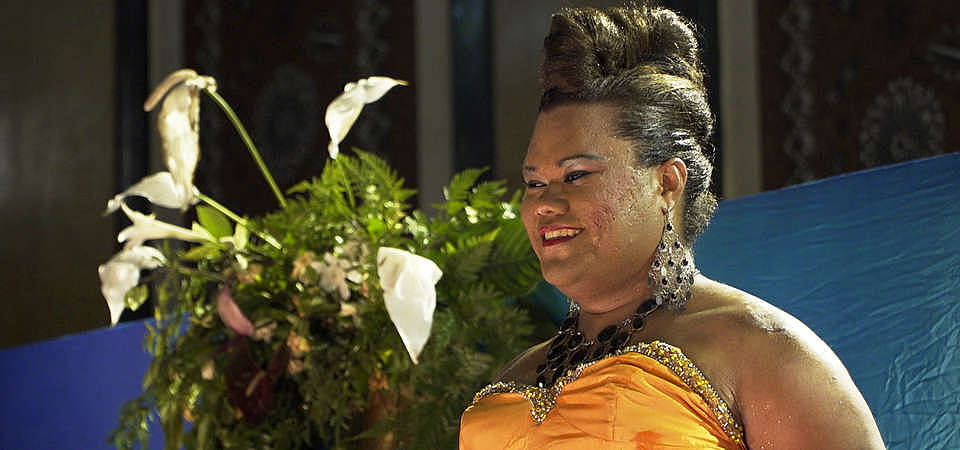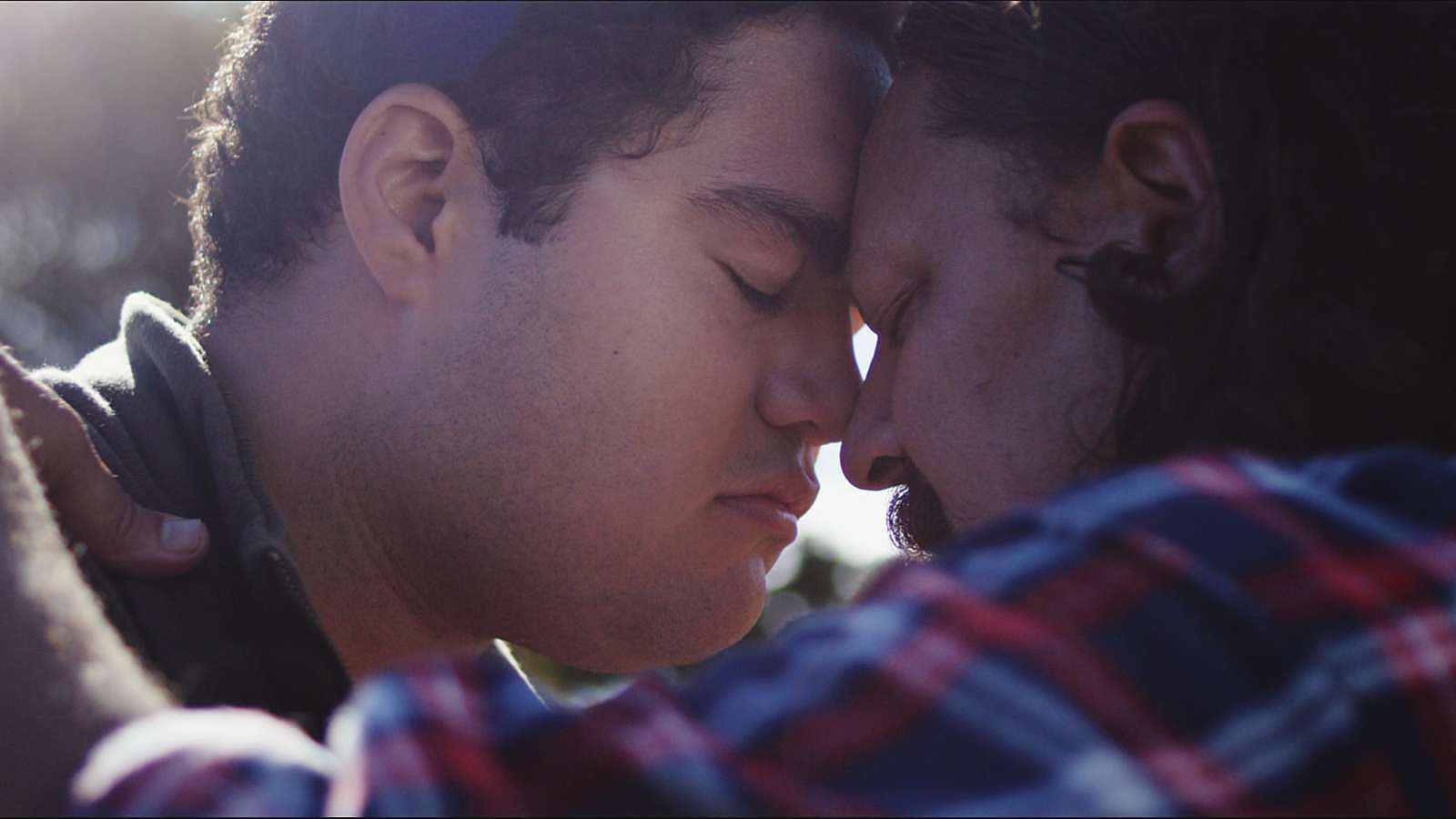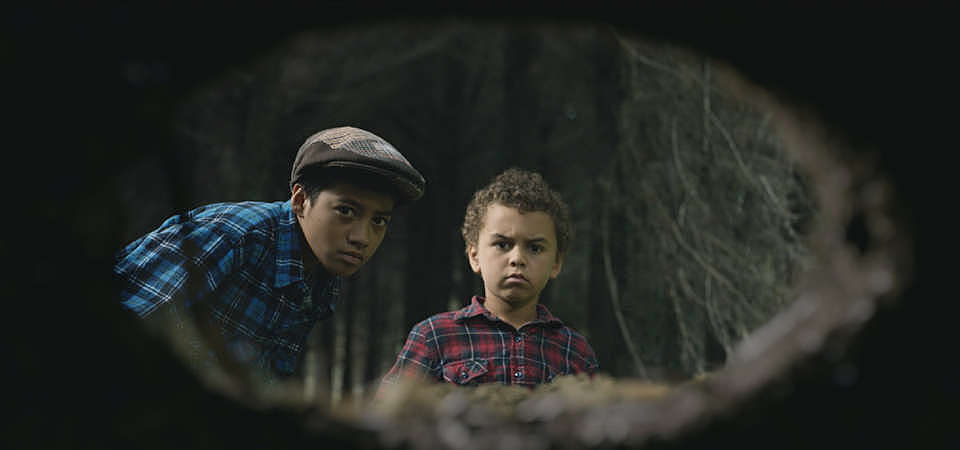Review: Ngā Whanaunga Māori Pasifika Shorts 2017
Consisting of seven short films from Māori and Pasifika filmmakers, 2017’s Ngā Whanaunga programme boasts a strong line-up that explores modern city, country, and island life for indigenous people. With a focus on the challenges of youth, the selection offers thoughtful comment on a wide range of topics including culture, whanau, gender and sexuality.
Consisting of seven short films from Māori and Pasifika filmmakers, 2017’s Ngā Whanaunga programme boasts a strong line-up that explores modern city, country, and island life for indigenous people. With a focus on the challenges of youth, the selection offers thoughtful comment on a wide range of topics including culture, whānau, gender and sexuality.
Mannahatta
Renae Maihi’s Mannahatta follows a young immigrant man through a week-long trial to secure a job in a Manhattan pizzeria. Unfortunately – or will it prove fortuitous? – he finds his plans interrupted by the wandering spirit of Native American man, who has chosen him to help fulfil a task and lift an historical burden. Gorgeously shot in black and white the city (nights in particular) comes alive under her camera. Though one or two of the dramatic sequences in a hotel don’t quite land as well as the rest, the film’s themes of recognition, reconciliation, and connection to the land come through loud and clear, via the striking imagery, one image being a Native American man in traditional attire and paint walking the streets of current day New York.
Natalie
The connective strands of whakapapa are brought into sharp relief in Qianna Titore’s short. The titular Natalie is gifted a waiata by her mother, which was written for her by Natalie’s koro, the echos of which fill the space between each of the three. The short explores grieving and a sense of the ongoing nature of life from a Māori worldview and packs a poignant punch so keep a tissue or two handy.
Tama
Jared Flitcroft and Jack O’Donnell's story of young deaf boy Tama and his prickly younger brother taking a tense trip to the urupā (graveyard) with their dad, is another moving story. Told in part from Tama’s (the eldest) point-of-view, the film’s audio shifts back and forth between full and nearly completely muted to portray Tama’s experience dealing with an on edge brother and grieving, plus increasingly drunk dad. As well as showcasing a brave negotiation of a difficult family situation, the film throws in a quick piece of social commentary by way of a passing Pākehā family who slow down their car to stop and help (the whānau have pulled over and are clearly having problems) but upon getting a better look at this embattled Māori trio, markedly, speed up and drive away.
Lady Eva
Documenting the challenges of the fakaleiti life in Tonga through the lens of eponymous Lady Eva, Dean Hamer and Joe Wilson’s short exudes equal parts joy and melancholy. Kicked out of home for wanting to compete in the ‘Miss Galaxy’ beauty pageant, Eva finds solace and a place to be herself at the ‘leiti house’ amongst a caring community of support. As far as our society has come such stories are a strong reminder that we need to keep pushing for equality, acceptance, and the right for all to express who we are.
Sunday Fun Day
Tiger and her mum both have big nights planned for Sunday, but all does not go to plan and, come Monday, they find themselves standing together in the face of ugly prejudice shown by some of Tiger’s schoolmates. As a fellow reviewer-friend put it to me on Twitter: “Sunday Fun Day has the most satisfying ass beat down I've seen this year” – agreed! When these prejudiced punks push it too far, they find that this Tiger bites back. Pleasingly restrained performances, particularly from the lead ladies, nice use of light, and solid direction from Dianna Fuemana help the drama to land when Sunday Fun Day’s big moments arrive.
Tree
With a big secret made public, teenage Tongan girl Alisi seeks solace high up in the branches of a tree that dominates the suburban park near where she lives. Unsure quite how to weather the disappointment, judgment of her community of family and friends, she risks life on limb to give herself, and them all, some much needed space to take a breath. Filmmaker Lauren Jackson does a grand job of shooting the tree scenes, giving a sense of the dangerous height to which Alisi has climbed – whoever actually did the climbing looks pretty damned impressive doing it too! – whilst making smart use of the single location. Mile Fane gives an arresting performance as Alisi, showing believable vulnerability despite the small scale of the drama. Tree rides close to its distinctive location almost becoming an unhelpful distraction at times but in the end manages to keep to the right side of that line.
Possum
A bit of a throwback, Dave Whitehead’s Possum presents an idealised picture of semi-rural life for two young Māori brothers in 1970s New Zealand. It is also the only short in this selection that plays in the realm of the ‘fun yarn’ rather than being a more serious thematic piece. As such, it provides a nice counterpoint to some of the very good but quite grim narratives preceding it. Gone bush on a work/camping expedition with their dad, the (slightly) older brother Nate is hassling his younger brother David (Duane Evans Jnr and Te Ahitaewa Hakaraia-Hosking – both very good!) about being a baby because it is the first trip he’s been allowed to go on. Given free run to explore woods by dad so long as they stay within hearing of the workers chainsaws (hello the 70s!), the boys follow up on dad’s mate Toko’s tale of a scary possum he calls ‘Scar’, with surprising results. Taungaroa Emile is fab in the role of the dad, though I have to say, it took me a few moments to reconcile the fact of his being such a good fit. I guess he’s still in my head as Boogie from Once Were Warriors or Soul in Toa Fraser’s No. 2. Possum is a fun and engaging short, with some decent effects (thanks Weta) – a perfect way to end this excellent, thoughtful Māori and Pasifika shorts selection.



